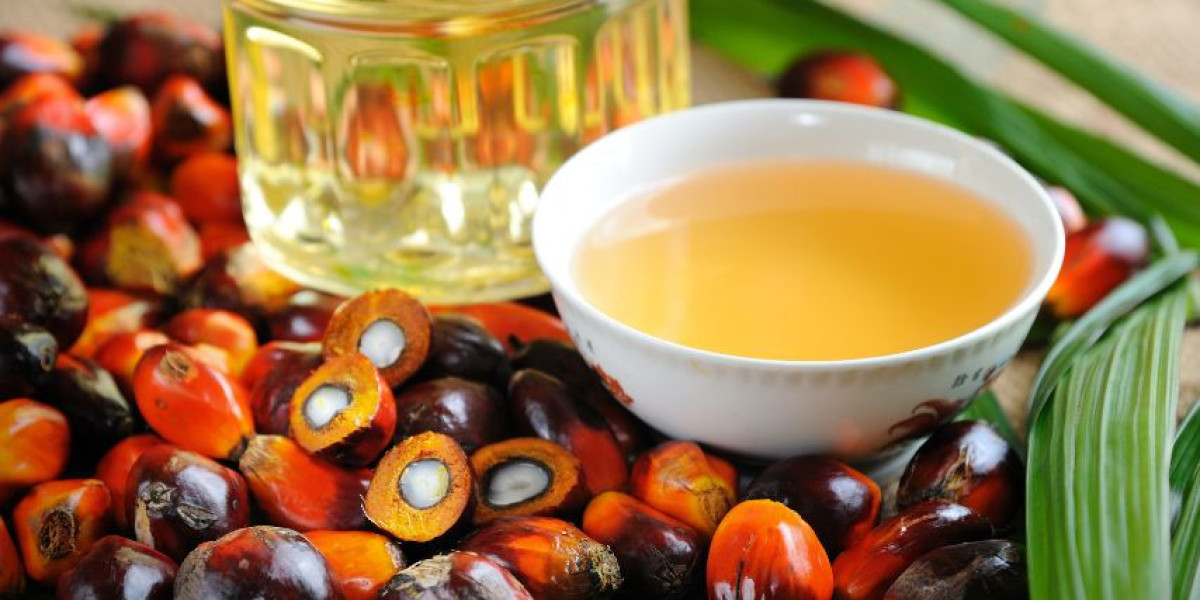Malaysia is one of the world's largest producers of palm oil, a commodity that significantly contributes to the country’s economy. However, the palm oil industry has long been under scrutiny for its environmental and social impacts. Deforestation, habitat loss for endangered species, greenhouse gas emissions, and labor rights violations are among the most critical challenges the sector faces.
In recent years, sustainability has become a cornerstone for the industry's future. This shift is driven by stricter global regulations, consumer demand for environmentally friendly products, and Malaysia’s commitment to achieving its sustainable development goals (SDGs). From a consultant's perspective, implementing sustainability in the palm oil industry is not just an ethical obligation—it is a strategic necessity for remaining competitive in a globalized market.
This article explores the key challenges, strategies, and opportunities for advancing sustainability in Malaysia’s palm oil sector, highlighting the role of sustainability consultants in driving transformative change.
Challenges to Sustainability in the Palm Oil Industry
1. Deforestation and Biodiversity Loss
The expansion of palm oil plantations has been one of the leading causes of deforestation in Malaysia. Clearing forests for agriculture disrupts ecosystems and threatens endangered species such as the Malayan tiger, orangutan, and pygmy elephant.
2. Greenhouse Gas Emissions
Peatland conversion for palm oil plantations releases vast amounts of carbon dioxide and other greenhouse gases into the atmosphere. Additionally, improper waste management, such as the release of methane from palm oil mill effluent (POME), exacerbates the industry’s carbon footprint.
3. Labor Rights Violations
Reports of forced labor, child labor, and poor working conditions have marred the industry’s reputation. Ensuring fair labor practices remains a critical challenge for achieving social sustainability.
4. Global Perception and Regulatory Pressure
The palm oil industry faces intense scrutiny from international markets, with some countries imposing bans or tariffs on non-sustainably produced palm oil. Certification schemes like the Roundtable on Sustainable Palm Oil (RSPO) are often criticized for insufficient enforcement.
5. Smallholder Inclusion
Smallholders account for a significant portion of Malaysia's palm oil production. However, they often lack access to resources, technology, and knowledge needed to adopt sustainable practices, creating a gap in achieving holistic industry transformation.
Strategies for Advancing Sustainability in the Palm Oil Sector
1. Embracing Certification Standards
Certification schemes like the RSPO, Malaysian Sustainable Palm Oil (MSPO), and International Sustainability and Carbon Certification (ISCC) provide frameworks for sustainable practices. Consultants play a crucial role in helping companies comply with these standards by:
- Conducting gap analyses to identify areas requiring improvement.
- Providing training on sustainable practices for plantation managers and workers.
- Assisting with the documentation and reporting required for certification.
2. Enhancing Supply Chain Transparency
Traceability is vital for ensuring that palm oil is sourced from sustainable plantations. This involves tracking the supply chain from plantation to consumer, ensuring compliance with sustainability criteria at every step. Digital tools such as blockchain can help enhance transparency and traceability.
3. Promoting Circular Economy Practices
A circular economy approach can help reduce waste and improve resource efficiency in palm oil production. Strategies include:
- Converting palm oil mill effluent (POME) into biogas to generate renewable energy.
- Using palm kernel shells and empty fruit bunches as biofuel.
- Recycling nutrients back into the soil to reduce chemical fertilizer use.
4. Supporting Smallholder Farmers
Smallholders are key stakeholders in Malaysia's palm oil industry, and empowering them is essential for achieving sustainability. Consultants can facilitate:
- Capacity-building programs to educate smallholders on sustainable farming practices.
- Access to funding and technology to help smallholders adopt eco-friendly methods.
- Inclusion in certification programs to improve market access and profitability.
5. Leveraging Technology for Sustainability
Technology can revolutionize sustainability practices in the palm oil sector. For example:
- Remote sensing and GIS mapping: Monitor deforestation and land use changes in real time.
- Precision agriculture tools: Optimize resource use, such as water and fertilizers.
- Drones and IoT sensors: Monitor crop health and improve plantation management.
6. Strengthening Labor Rights
To address labor issues, consultants can work with companies to:
- Develop and enforce ethical labor policies.
- Conduct regular audits to ensure compliance with labor laws.
- Provide training programs to improve workers’ skills and knowledge.
Opportunities for Malaysian Palm Oil in Sustainability
1. Meeting Global Demand for Sustainable Products
As consumers and businesses prioritize sustainability, the demand for certified sustainable palm oil (CSPO) is growing. Companies that adopt sustainable practices can access premium markets and differentiate themselves from competitors.
2. Contributing to Malaysia’s SDG Commitments
Sustainability in the palm oil sector aligns with Malaysia’s broader goals of achieving the SDGs, particularly those related to climate action, responsible consumption, and economic growth.
3. Strengthening Malaysia’s Global Reputation
Adopting and showcasing sustainable practices can counteract negative perceptions of the palm oil industry and enhance Malaysia's reputation as a responsible producer.
4. Innovating Through Research and Development
Investments in research and development can lead to innovative solutions for sustainability challenges. For instance, developing high-yield palm varieties can reduce the need for land expansion, while advances in biofuel technology can improve the industry's environmental performance.
The Consultant's Role in Driving Sustainability
Sustainability consultants act as catalysts for change, providing expertise and guidance to help organizations navigate the complexities of sustainable palm oil production. Their roles include:
- Strategic Planning: Developing customized sustainability strategies that align with company goals and regulatory requirements.
- Training and Capacity Building: Educating stakeholders on sustainable practices and the importance of compliance.
- Audit and Compliance Support: Ensuring adherence to sustainability standards through regular audits and documentation.
- Stakeholder Engagement: Facilitating collaboration between companies, smallholders, NGOs, and government agencies to drive collective action.
- Performance Monitoring: Using key performance indicators (KPIs) to track progress and identify areas for improvement.
Conclusion
Sustainability in the Malaysian palm oil industry is no longer optional; it is a necessity for long-term growth and global competitiveness. Addressing environmental, social, and governance (ESG) challenges requires a multi-faceted approach, involving innovative technologies, collaborative efforts, and a commitment to ethical practices.
Best sustainability consultants play a pivotal role in this transformation, guiding the industry toward more sustainable practices while ensuring compliance with local and international standards. By prioritizing sustainability, the Malaysian palm oil industry can safeguard its economic contributions while protecting the environment and promoting social equity—paving the way for a greener and more responsible future.









